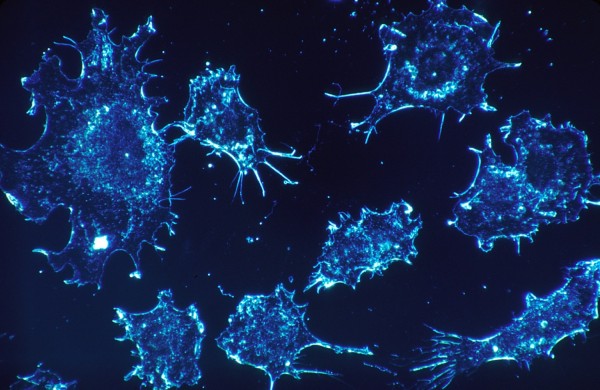Anti-Aging Therapy Against Metastases Effective, Leading To Patient's Personalized Therapy
Institute of Oncology Research conducts a preclinical study showing the role of aging cells in the development of metastases and recognizes a drug proficient enough in blocking them. The study led by Professor Andrea Alimonti, M.D., the group researchers' findings from Switzerland, the United States, and Italy provides information for patients' personalized therapy.

According to the researchers, aging cells play a role in the development of tumors
ALSO READ: Baking Soda for Cancer Treatment? Here's What You Need to Know
According to the release by Università della Svizzera italiana, following specific therapies, aging tumor cells stop multiplying. They added that this cell aging process is called senescence. The release further said that in cancer therapy, the aging is intentionally induced with medication or drugs to slow the tumor's growth. However, they added that senescent tumor cells, in certain conditions, can take the opposite path, such as becoming more aggressive and form development or growth, which is unwanted during therapy.
National Centers for Biotechnological Information (NCBI) added that cellular aging acts as a tumor suppressor mechanism and may improve cancer progression under certain circumstances. They added that one important cellular aging process is oncogene-induced senescence that acts as an important anti-cancer mechanism.
Methods and results of the study
According to the release, the researchers identified a specific gene - TIMP1 - that triggers senescent cancer cells in playing an active role in the formation of metastases. The release further said that the gene is lost or inactivated. The so-called reprogramming of factors released by senescent cells in a composition makes the tumor even more aggressive and invasive, making it metastatic.
READ ALSO: Treatment Booster for Metastatic Melanoma Discovered, Making Them Less Toxic
With the help of Veneto Institute Molecular Medicine (VIMM, University of Padua), and ETH Zurich, the study has shown that the absence or inactivation of TIMP1 and PTEN, a gene playing a key role in the process, occur regularly in prostate cancer, associating to the tumor's treatment and the more severe clinical outcome.
The release added that the findings and the information make the researchers attempt to identify a feasible route in using a new drug of medication called senolytic drugs that can kill senescent cells with the assumption from the start that they can play an important role in stopping the process. According to professor Alimonti, the results of this research directs us towards personalized cancer therapy. He added that the patient's genetic factors could regulate whether the senescence has a positive effect or negative effect on tumor growth in regard to the stimulation of the formation of metastases. Alimonti further said that senolytic drug that kills senescent cells should be administered instead of chemotherapeutic drugs.
IOR post-doctoral researcher and first author of the study, Dr. Ilaria Guccini, said in the release that senescent cells are known to initially block the tumor growth or push the tumor is becoming much more aggressive and metastatic. Still, it is not clear how this phenomenon occurs. She stressed that it is essential to try solving senescence's dichotomy to stop the harmful effect of metastases. She also emphasized that they discovered that TIMP1 is the key gene that regulates senescence in prostate cancer. The formation of metastases can be stopped by eliminating the said cells that favor the process.
Check out more news and information on Cancer on MD News Daily.
Nov 15, 2020 12:00 PM EST




